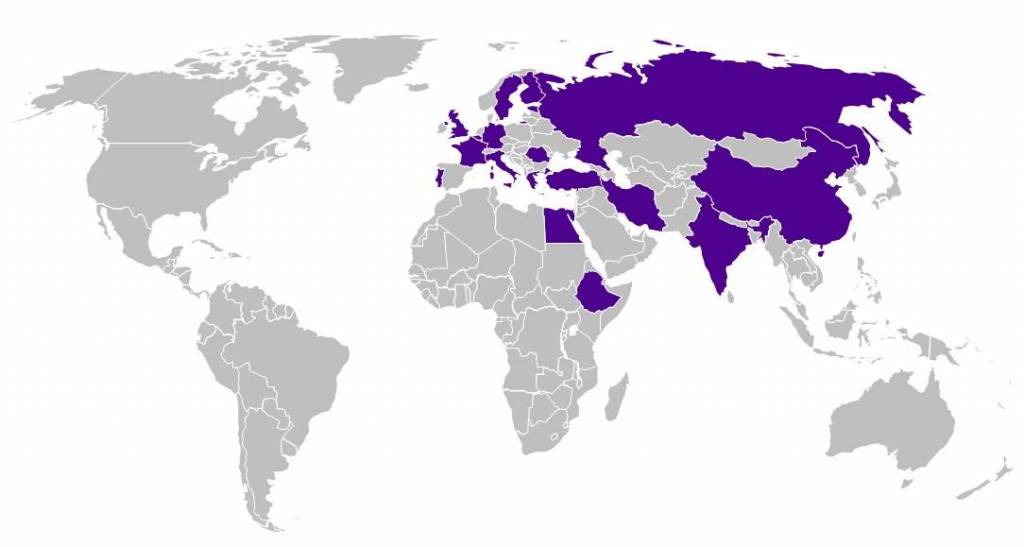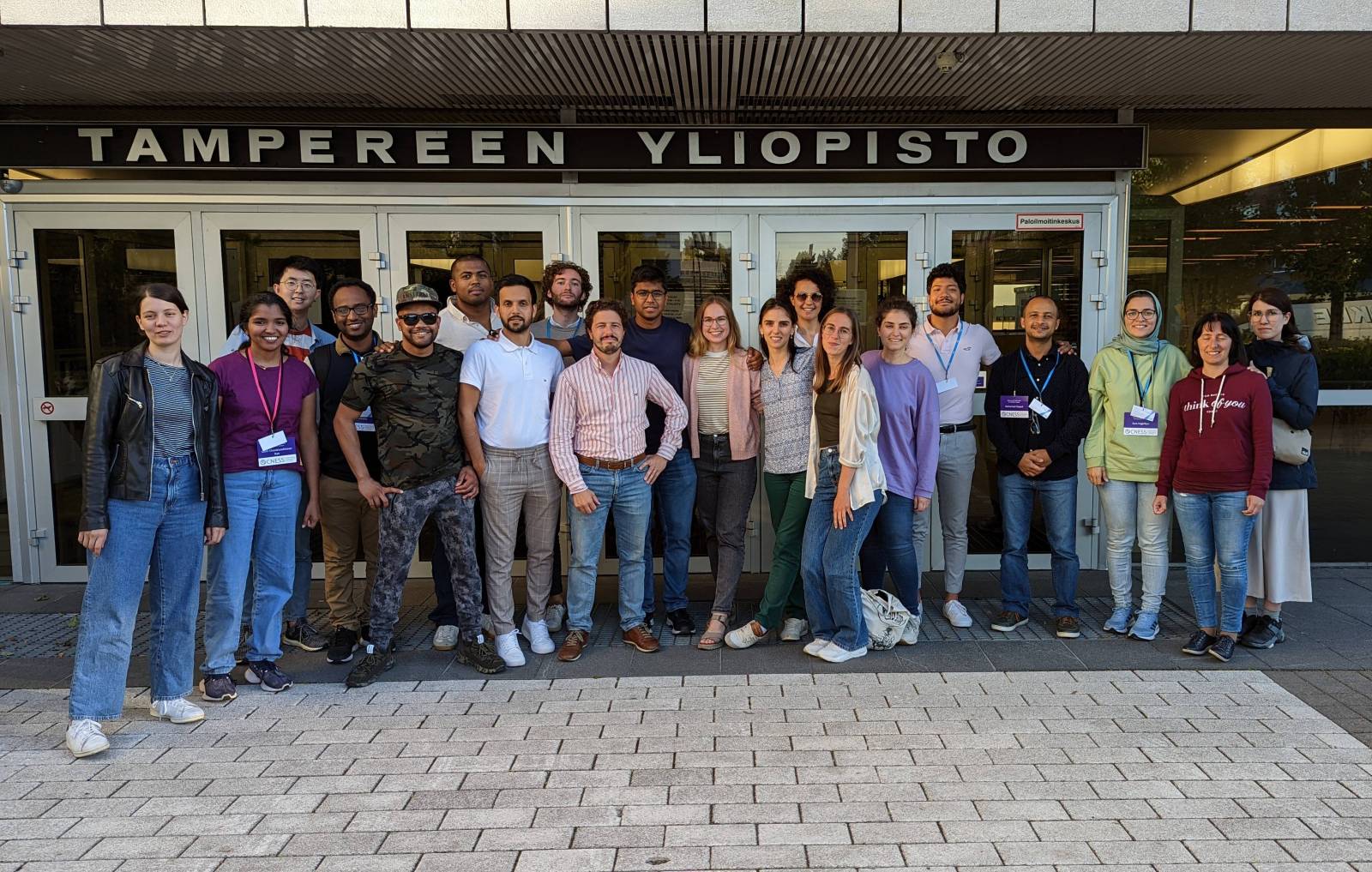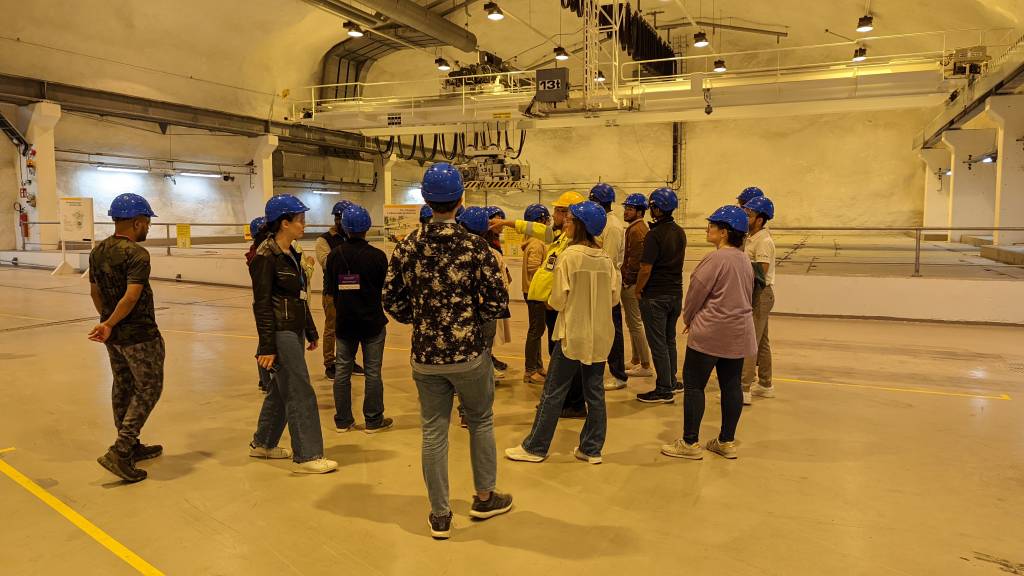CNESS Summer School 2022
Tampere University, Tampere – Finland
08. August – 13. August 2022
30h contact teaching (F2F), 2 ECTS
s
In August 2022, CNESS welcomed 22 young researchers and professionals from various energy-related fields and social backgrounds for its first summer school to gain a better understanding of the complexity of the energy systems. During the week, 16 speakers presented more than 18 different topics in the field of energy policy, sustainable architecture, aerosol research, electrification and many more. After a short introduction and campus tour by CNESS coordinator Carl Muth, Jean-Monnet Professor and CNESS lead PI Pami Aalto introduced the students to energy policy and its interplay with the energy system. Next, Professor Outi Sievi-Kort underlined the importance of data platforms for energy and climate solutions and discussed the challenges of handling energy and climate data with the students. Guest speaker from TAMK, Eero Nippala, addressed the difficulties of sustainable retrofitting of Finnish buildings, followed by Tuomas Vanhanen´s presentation about the Hiedenranta sustainable living project. The summer school participants also visited the Hiedenranta project later that day, including a guided tour around the historical area.
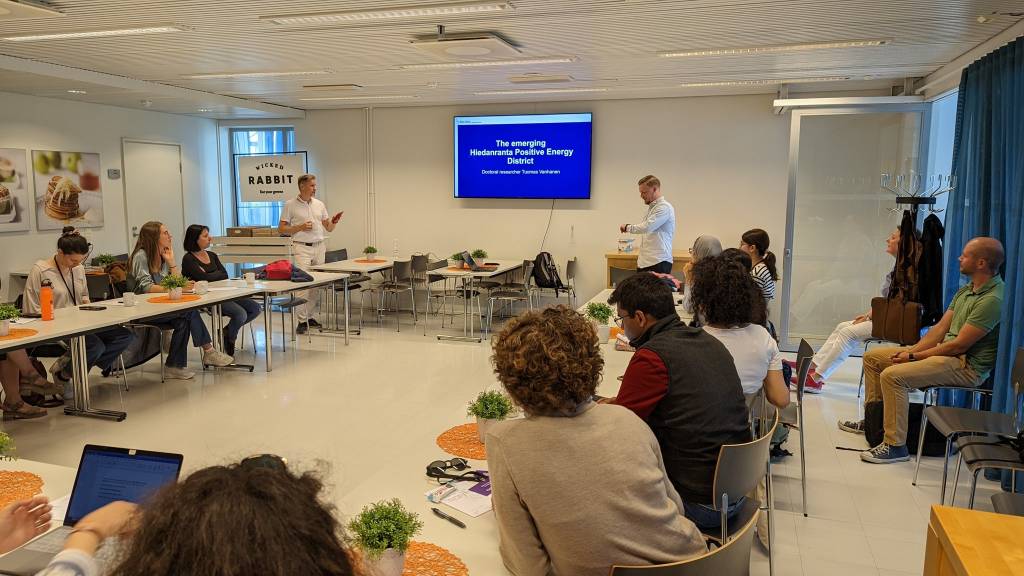
The CNESS summer school is based on the belief that seeing things in addition to hearing is helpful in understanding unknown areas and their particular importance. Therefore, Professor Topi Rönkkö and his team visited the campus and its ATMo Lab, where the students could observe how aerosol data is collected. In addition, at VTT in Hervanta, Kirsi Kotilainen presented their research on vehicle fleet electrification and showed prototypes in the testing facilities. The integration and diffusion of new technologies often come with significant changes beyond the technical aspect. Regarding this issue, doctoral researcher Ashan Qureshi presented his research findings about the impacts of EVs and overall electrification on today´s societies.
The interplay between technology, society and business was also underlined by Professor Teemu Laine and Deborah Kuperstein Blasco in their presentation about decision processes and priorities in energy-related investments. Shortly after, Professor Sami Repo (Large scale integration of wind power) and, Yrjö Majanne (Process control), Chao He (Biorefinery and sustainable waste management) focused on the technical part of the new energy technologies and the energy system in general.
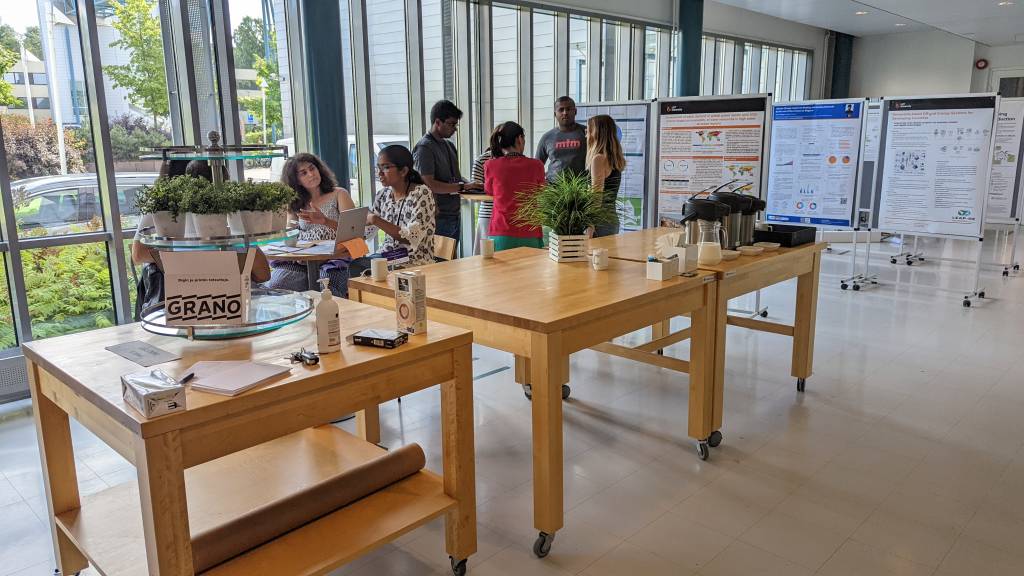
Besides the presentation, the students also had to bring in their knowledge in lively discussions in class and during the poster sessions. For example, all participants had to visualize their research findings with a poster that was discussed among each other and with the speakers in poster sessions before, during the breaks, and after the lectures. In addition, in an energy simulation, the participants had to create a unique set of policies to combat global warming – a difficult task despite their pre-existing expertise and newly gained knowledge during the multidisciplinary five-day program.
Attending a summer school also includes learning more about the hosting country. From an energy perspective, Finland is one of only three countries in Europe that construct a new nuclear power reactor and the first-ever country to build long-term storage for high-radioactive nuclear waste. As part of the summer school, a visit to Olkiluoto nuclear power plant was organised, including a guided tour around the underground low and mediate-level radioactive waste repository. Here, students learnt about the difficulties of radioactive waste disposal and how Finland plans to solve an almost century-long pending problem on how to safely store the waste for the next 100.000 years.
Besides energy-related topics, Finland is known for its vast nature, thousands of lakes, and, of course, sauna. After the lecture, the participants could join an after-hour social program that included a visit to Rauhaniemi Sauna with a fresh bath in the lake, the Pyynikki Brewery Beer Garden, a tour around Tampere to see the old parts of the town, Tamperella Ravintola and many more. Thanks to the exceptionally warm weather, the summer school ended with cocktails at Periscope Rooftop Bar, with an amazing view on the sun set and Tampere.
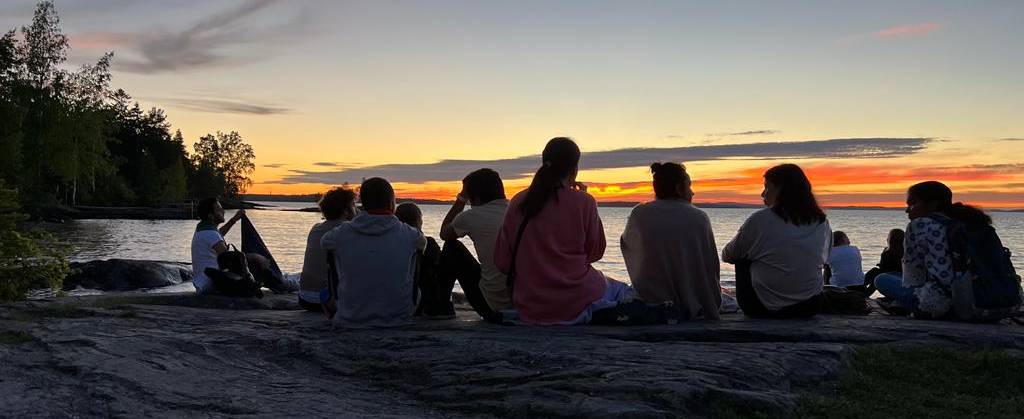
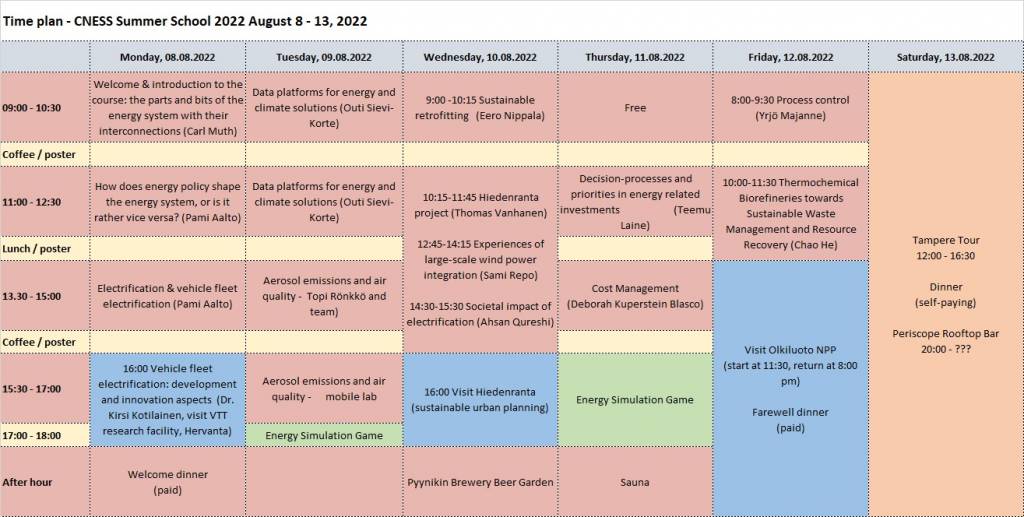
s
Participants and their feedback
For the Summer School, CNESS aimed to have a very diverse body of participants of different social and academic backgrounds that cover various parts of the energy transition from engineering, architecture, social sciences, politics, business and law. Therefore, CNESS selected 22 early-stage researchers and young professionals from 18 different countries to join us for an intensive one-week program in Tampere. This multitude of perspectives strengthened the discussions and also enabled the participants to gain a broader perspective on the energy system and its challenges.
